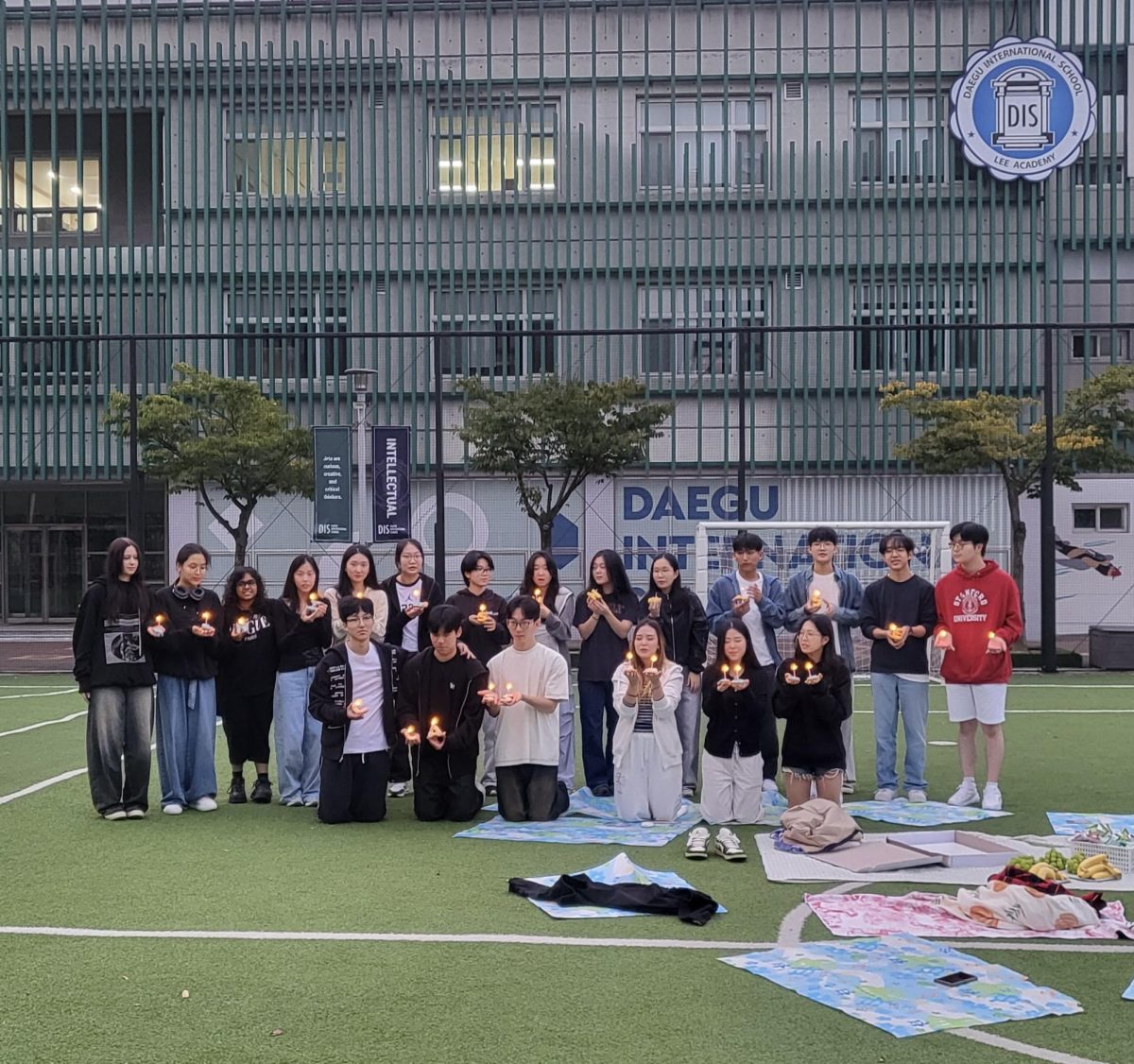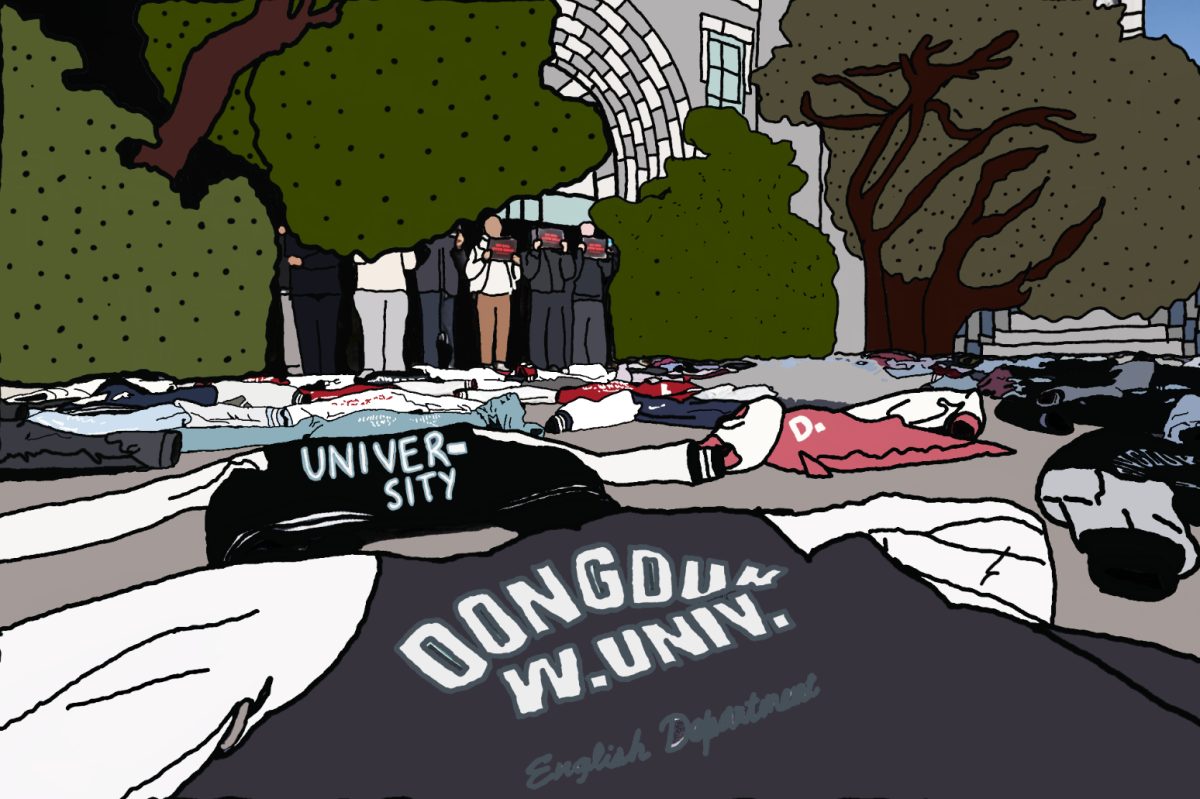Shattered windows and spray-painted roadblocks scar the campus of a renowned college. Students of Dongduk Women’s University furiously protest against the school’s plan to modify admission quotas. Women’s universities in Korea represented a struggle toward gender inclusivity in the 19th and 20th centuries. However, they now set the stage for a blotchy conflict.
In the 20th century, women’s universities empowered underprivileged women by providing advanced education. However, Korea’s shift toward gender-equal practices and the low fertility rate led these universities to begin legislation processes to modify the female-only admissions process to a co-educational policy. Currently, only 14 out of 26 schools remain women-exclusive.
Although Dongduk Women’s University stated that they had merely begun the planning process, some paranoid students believed that their safety would be threatened with sexual harassment and misogynistic animosity. Consequently, they began a violent protest that ultimately left a dent in the school’s image.
The irresponsible behavior of the protestors complicated the incident. As the protesters daubed spray paint all around the campus, they caused a staggering 5.4 billion KRW worth of damage. Later, when the protestors realized that the school would issue a legal conflict, they began to blame each other on who should pay the recompense.
Along with the financial damage, their actions violated the rights of the students who didn’t participate in the protests. As the crowd vandalized school property and occupied campus buildings, they disrupted the educational environment of others, thus affecting the graduation schedules of innocent pupils. For instance, the rioters blocked entry from the music hall, which forced a professor to plead to make way for his pupils’ graduation recital.
Protesters justified that they took action to empower student voices within their learning environment. However, democracy lost its place in the tumultuous situation. The student council conducted an open ballot to collect personal opinions about the co-ed policy. However, the vote came with zero confidentiality – each student saw everyone else’s votes. This forced many students into conformity, but according to the council, the poll produced ‘democratically justifiable’ results; 99.9% of Dongduk students disagreed with the policy.

Based on these flawed results, the anti-co-ed side adamantly denied any forms of negotiation—such as the school’s attempt to hold five separate meetings with the student council—claiming that the process quenched student voices.
Following the protest, condemnations assailed the students. Even before the incident, society framed women’s universities as a haven for feminists. The riot only worsened the situation: Lee Ki-In, a politician in the Reform Party, described it as “a feminist group pretending to be a martial law band.” Although the students purportedly began with noble intentions, their anarchic methodology further seals the fate of feminism and women’s universities.
The media attention that came from the protests led more students to vocalize their criticisms against this antiquated system for its unfairness toward men. Women’s universities take up over half the enrollments in pharmacy schools in Seoul, as well as other lucrative majors.“I hope that women’s universities are converted to co-educational schools and male students applying to pharmacy schools will have a fair opportunity in the entrance exam,” said Riwoo Kang, a male student attending Beomseo High School.
The anti-co-ed movement has cast a veil of extremity over not just the radical feminists, but all students at these universities, which in turn resulted in employment disadvantages. “I think that the perception of the women’s university itself has worsened due to the students’ protest actions,” said Sihyeon Park, an alumnus of Dongduk Women’s University.
In the scope of feminism as a whole, the protests, meant to empower women, have rightfully painted the movement as “radical,” worsening the divide between feminists and masculinists. Although the movement began to protect a woman’s safe haven, the derogatory language this phenomenon has exacerbated, such as “페미 (a derogatory term for feminist,” strips women of the little security that remains in today’s polarized society.
The protests against co-ed have further spoiled feminism’s chances of triumph through the students’ reckless demeanor and dictatorial decision-making. In contrast to their intended effect, they not only failed to turn the tide of time but scarred the college and career paths of many students. This disgraceful act of so-called feminism must be put right.





















































Sola • Feb 1, 2025 at 12:53 pm
This is crazyyy. Awesome jobbb!!!
Welcome to Jets Flyover!!!
Jacob McAteer • Jan 23, 2025 at 6:26 pm
Great article!
Kaylie • Jan 23, 2025 at 6:25 pm
nice article!
Justin Huh • Jan 23, 2025 at 6:24 pm
Amazing first article Thomas!
Agnew • Jan 23, 2025 at 6:25 pm
nice article!